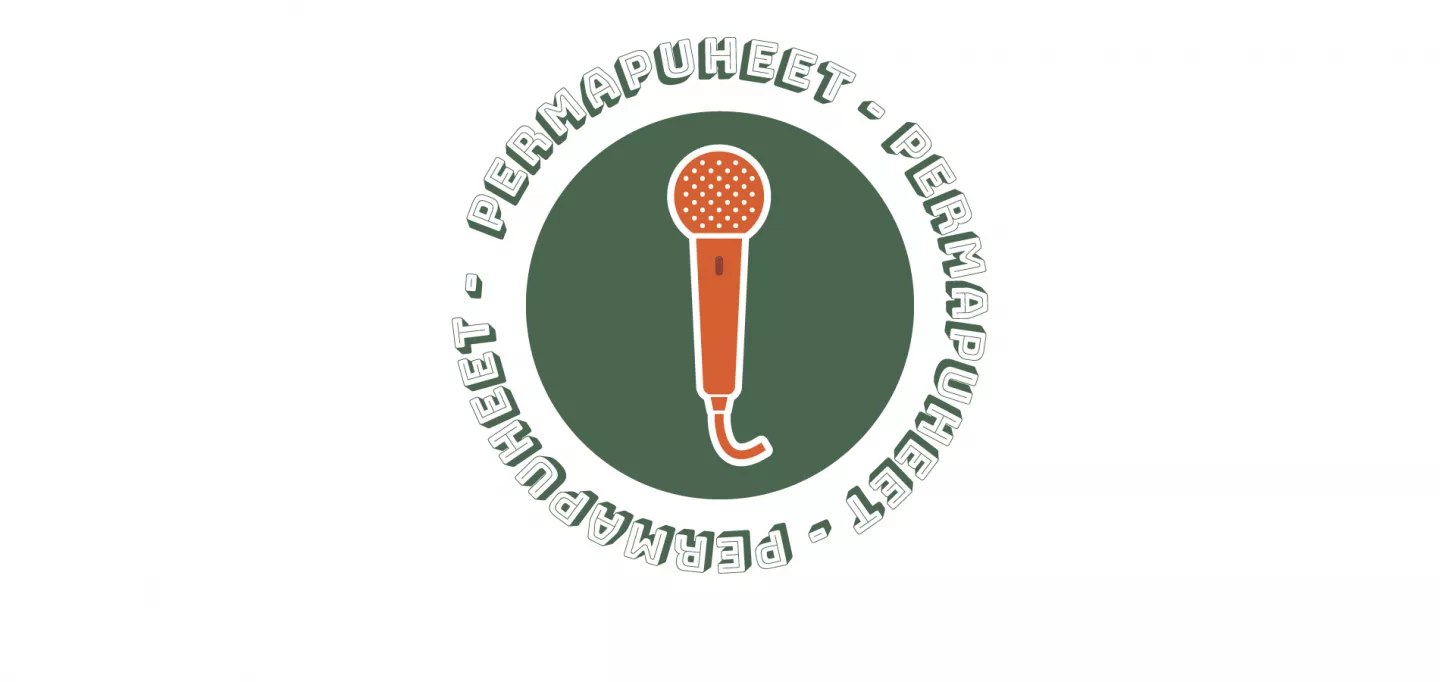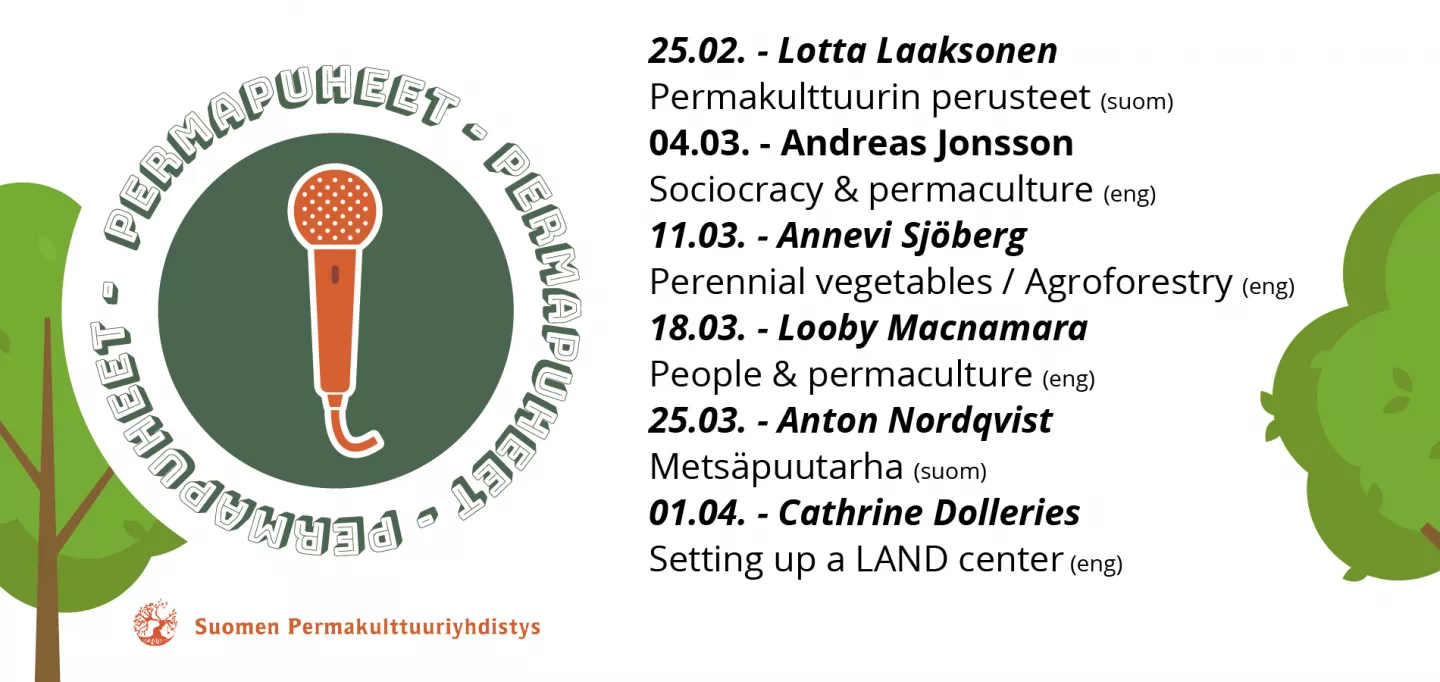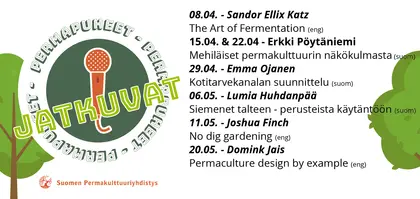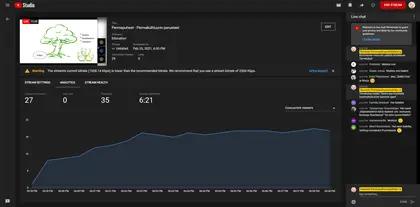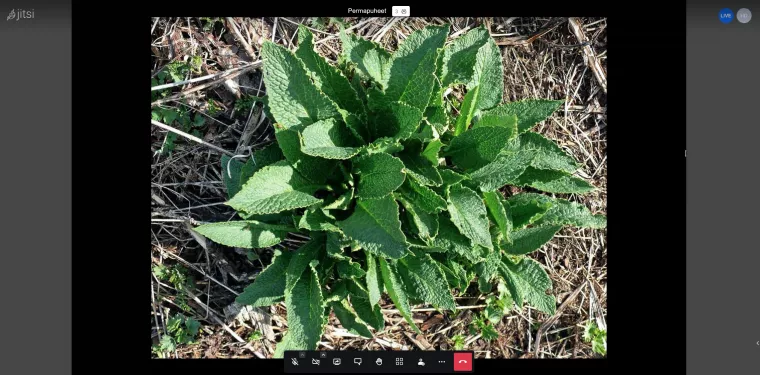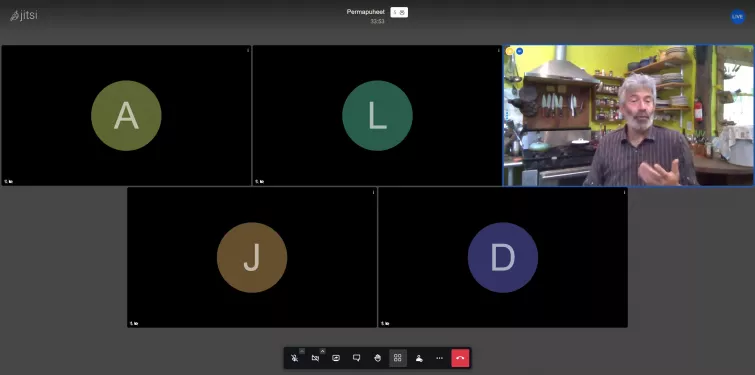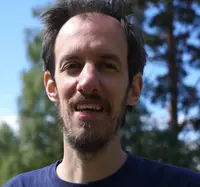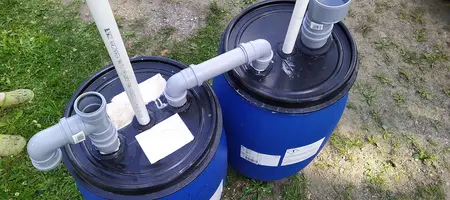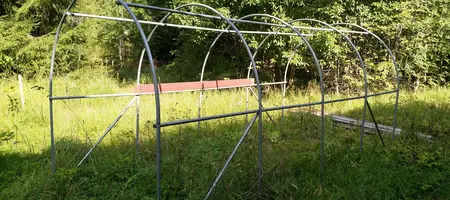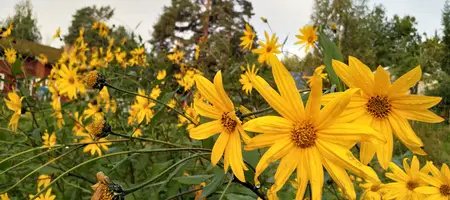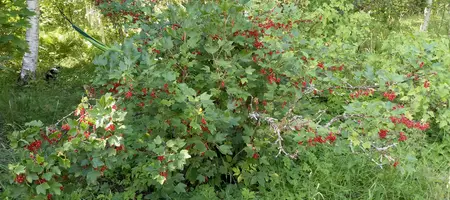Preface
When COVID-19 hit the world I was in Germany at a funeral burying my step-father. Three months later the spring general assembly (ga) of the Finnish Permaculture Association was held online. Another quarter a year later the restrictions allowed to have an in-person meeting in Helsinki and then 2 months later the autumn general assembly in Koroinen, Turku. Most of the teachers squeezed their lectures into that tiny 3 month time frame of low restrictions. Afterwards the lectures dropped close to zero.
For me COVID-19 was and is no problem. I’m a nerd, an introvert. I actually need time of my own to recharge while many others need to be together. Corona gave me exactly that opportunity – to recharge. I could turn to myself and start a zone 00 design. And finally online lectures and online meetings were accepted by the masses, which has given me freedom of choice – something people that enjoy and participate in face-to-face courses with ease always have. Corona has given me candy land. All that suppression of introvert personality traits and the expectation one must be sociable at all times, that the extrovert world - which is very dominant in the permaculture circles - pushes on people, was gone. I felt free for the first time in decades – like when I discovered the internet for me in 1994.
Scope
Earth care – Bringing the knowledge of permaculture to as many people as possible so that they can take care of the Earth.
People care – Learning the things I’m interested in. Encouraging other to step forward to hold a lecture. Bringing permaculture and permaculture related topics to the members of the Finnish Permaculture Association and beyond.
Fair share – I get the knowledge I want while others get the lecture they want while other get paid for holding a lecture.
I’m using SADIMET as a design process
Survey
In February 2020 I sat in a meeting with some officials from different permaculture associations. I have never in the permaculture world seen more panic than in that meeting. From a Finnish perspective, almost no one’s job is that deeply anchored in permaculture that their whole income base would just crumble away, their whole existence would just vanish if they couldn’t teach for a year. But from the UK association’s perspective it felt different. It was sheer panic. Panic about where the money from all the courses that wouldn’t be held should come from. The panic to make ends meet without the money from teaching. But I do I know what it means to lose an entire income stream within the snip of a finger. I have been there. And as the Hitchhikers guide to the galaxy states it: “Don’t panic”.
Observations
- Membership numbers declined during the years of transition towards Sociocracy (2019 / 2020), since the association was spinning around itself.
- With Covid-19 around the limit of physical meetings is limited in Finland; at times it was 6, 10 or 20 people.
- From multiple seminars, workshops etc. it was clear that 8 hours in an online meeting won’t work – complaints coming mostly from older people
- Finland went back into a harder lock-down in March 2021
- Online meetings became an accepted and widely adapted way of meeting in 2020
- Even total computer illiterates came to permaculture meetings
- Online- lectures and courses became the normal way of learning
- Online panel discussions are no problem anymore
- Even big events like the Mobile World Congress went online
- There are a lot of different online meeting / collaboration tools around to get the job done: Zoom, Skype, Youtube, Twitch, Jitsi - to name just some.
- The willingness of permaculture teachers / knowledge carriers to share knowledge is given at any time
- There are Finnish teachers around that can teach about certain topics
- Private connections to different teachers exist
- Connections to other associations exist
- Members of the association can help
- Due to income streams being dried up the willingness to hold online lectures is high
- The UK permaculture associations recommends to have a list of courses attended as diploma apprentice
- The UK permaculture association is in official diploma papers talking about Zoom calls and not video calls
- The permaculture community is highly inclined to Zoom as their tool-of-choice
Analysis
PMI
Different online formats applicable for teaching
| Topic | Plus | Minus | Interesting |
| One lecture | Doesn’t need much commitment from participants | One lecture might not be enough to cover the topic | Ideal for experimenting with different aspects |
| Teacher doesn’t need to prepare a huge presentation | |||
| Costs are minimal | |||
| Can be part of something bigger | |||
| Easy to organize | |||
| Conference | A lot of different topics on one or multiple days | Could feel overwhelming | more difficult to experiment |
| Panels are easy to organise since speakers are already allocating time for the conference | fatigue after some hours if conference goes too long | possibility for a opening speech | |
| Needs multiple hosts, co-hosts | |||
| Costs are higher | |||
| Panel discussion | Multiple voices from different angles | Takes time to organize | Interesting discussions and insights possible |
| Deep dive into a topic possible | Needs a host | experiments possible | |
| Costs are minimal if speakers don’t cost much money |
I also run a PMI for possible software used
| Topic | Plus | Minus | Interesting |
| Zoom | widely used | costs money | Closed source doesn’t go along with the idea of sharing in permaculture |
| breakout rooms in pro version | Zoom is closed source | ||
| recording possible | Investing in Zoom means investing in a stock traded company | ||
| streaming possible | |||
| Call-in number | |||
| non for profit version is extremely expensive | |||
| Jitsi | Open Source | no breakout rooms | setup on server possible |
| Easy stream to Youtube | not that feature reach compared to Zoom | ||
| recording possible | no Call-in number | ||
| for free | |||
| GoMeeting | a lot of features | same price point as Zoom | |
| recording possible | Streaming difficult | ||
| Call-in number | closed source | ||
| Skype | for free | closed source | |
| Call-in number | can’t host many people | ||
| Teams | for free | difficult to set up for non-for-profits | |
| for free for non-profits | difficult to stream | ||
| recording possible |
I also thought about the difference between webinar and interactive lecture:
| Plus | Minus | Interesting | |
| Webinar | with no interaction the choice of software is easier | no interaction or interaction only via comments | |
| Recordings are easier to watch since they come with less break-ins from the audience | |||
| Interactive Session | makes the topic more memorable | needs a software that can allows all that | with creativity all the features can be set together |
| usually funny | might be not shy peoples first choice |
SWOC
SWOC stands for Strength, Weakness, Opportunity, Challenges.
I use SWOC differently here. Instead of writing down what the struggles will be – finding them by asking questions, I put the item from the PMI into relative perspective. I review the items in relation to my and the associations capabilities. The table therefore shows what system plays to my and the associations strengths or weaknesses and what systems will come with opportunities and challenges.
| Strength | Weakness |
| One lecture | Conference |
| Panel Discussion | |
| Opportunity | Challenges |
| One lecture | Panel Discussion |
| Panel discussion | Conference |
| Conference |
Find below the SWOC from the association’s perspective that is more detailed:
| Strength | Weakness |
| from associations perspective | from associations perspective |
| multiple people working in communications circle | no experience with online events |
| experience with events | no experience with online conferences |
| adaptability | no experience with online panel discussions |
| improvisation skills | |
| improving workflows on the go | |
| Opportunity | Challenges |
| from associations perspective | from associations perspective |
| teachers from abroad | member management |
| diversity of teachers | technical difficulties |
| Food forest lecture | Amount of work needed |
| modular design | |
| lectures in Finnish | |
| showing social permaculture |
You can see from the more detailed SWOC that it will result in the systems put into the first table. It still misses the SWOC from my perspective – which I will not share here.
SMART goals
SMART stands for Specific, Measurable, Attainable, Realistic, Trackable (Time-Bound)
| Specific | Measurable | Attainable | Realistic | Trackable | |
| One Lecture | yes | yes | yes | yes | yes |
| Panel discussion | yes | yes | yes | yes | yes |
| Conference | yes | yes | no | no | yes |
From the SWOC and the SMART goals it looks pretty clear to me that the “One lecture” and / or the “Panel discussion” is the way to go forward
Limits and Helps
In Looby’s Design Web I really liked the points for limits and helps. This is why I’m using them here within the analysis:
| Limits |
| Money in account of the Finnish Permaculture association |
| Time per person involved |
| Limits given by the peers at the Finnish Permaculture association; unknown in the beginning |
| Availability of teachers |
| Willingness of members of the Finnish Permaculture association to support |
| Software limits, for example limit of number of participants. In combination with Youtube basically limitless |
| Helps |
| Family & friends |
| Active circle members at the Finnish Permaculture Association |
| Members in general |
| Money |
| The ability to make a Diploma Design out of it, stacking functions |
| My patience and joy |
| Extensive knowledge from managing uncommon events |
Within the Finnish permaculture association there is no or nearly no prior knowledge about holding any online lectures. Very few individuals have held an online seminar before.
Principles
The principles in this stage will guide me through the design.
- Multiple elements for important functions → One lecture feels not enough, also a panel discussion doesn’t feel enough. It also needs more than one person in the beginning to accept my idea. I’m bound to run my ideas by a peer in the association.
- Each element performs multiple functions → If we think of an event as an element then each event should accomplish more than one function. → Educate, get new members, connect, etc.
- Diversity → If I’m going to look for teachers, I’m not going to look for the same teachers that are always present in Finland. I also have to keep in mind to not just look for men but also women.
- Edge effect → It is not just about permaculture but also what is associated with it. Just because someone is growing good food organically doesn’t mean he could tell a lot about permaculture (Sepp Holzer didn’t know that he is into permaculture until someone told him that what he is doing is called permaculture). It is also about the edge of the association, the social edge, the connections between different associations / individuals.
- The yield of the system is theoretically unlimited → It might be not just about one lecture, but about the recording of it, the remix of it, conversion to podcast, etc.
- Obtain a yield → kind of the same as “the yield of a system is theoretically unlimited”
- Apply self regulation & accept feedback → Create a feedback from and evaluate the outcome with the communications team of the association. Give feedback to the teachers and receive from them.
- Design from pattern to details → Reminder to start at the bigger picture before diving into details
- Use & value renewable resources & services → no idea. I’d like to amend the principle a little → use & value OpenSource resources & services
- Integrate rather than segregate → An event should be rather inclusive – perhaps not just for members
- Use slow & small solutions → this one points away from the conference
- Use & value diversity → different teachers, different services, different topics
- Use edges & value the marginal → for edges see “Edge effect” for the marginal I’m a little puzzled. I guess I have to see during the design what kind of marginal presents itself
- Creatively use & respond to change → I guess whole the design could be put under this category. I didn’t rush anything in those changing times. I waited very long and observed long before I started designing.
I think I have so far analyzed the known aspects. Like in every design I probably have to improvise during the design phase. You can’t design for the unknown. But I can keep it in mind that there are more things that I don’t know than things I know.
I can’t do an online conference. I have enough knowledge to do it but the communications team of the association has not. I can’t do it alone, so a conference is out of the questions. The different analysis points showed it also. With a panel discussion I would have needed to find a panel that will discuss a topic and additional to that a host who knows the topic. Neither of those three will be simple. One lecture alone feels pretty awkward. I can’t really just design one lecture, or: I can design one lecture and then multiple it into a series.
Design
Start designing for me is usually a little ritual. I go to a Café and start. And while I’m stirring my coffee and having a pulla (Finnish cardamon bread) I go through my survey and analysis.
Ideas
Conference and panel discussion is out of the question and just one lecture won’t work. And while I take a big bite out of my pulla an idea is forming in my head:
A series of several lectures always on the same day and the same time of the day of a week. Giving people something constant in their lives, an anchor.
From my first initial thought I looked back to the principles:
- Every lecture is about permaculture or permaculture related topics
- Equality of female & male teachers
- Trying out different technologies – since the permaculture community is Zoom addicted it is a good point to show and try some alternatives
- Record lectures if possible and make them available to members → might come with a price attached
- If material used during the lecture is available → make it available to members
- The marginal → time → Maximum 1,5 h / lecture
- The marginal → teachers
- Design from pattern to details → first the concept then the lectures
From the observation, analysis and the ideas I formulated a concept
Concept
- PermaTalks (hey, I already got a name) is a series of 6-8 1-2 hour lectures
- Proposed starting date is End of February
- The lectures are held online using Jitsi & Youtube / Zoom
- Lectures get recorded
- Lectures get published at Youtube half a year later
- Access to the live lecture only for members
- Tickets for non-members at Holvi webshop
- Lectures in Finnish
- Lecture from foreigners in English
- Host introduced lecturer before lecture
- Host collects questions from chat
- Feedback form at our website
Teachers & Lectures
To diversify the mix of teachers & lectures I used zones.
- Zone 00 = for me
- Zone 0 = for my wife
- Zone 1 = for friends
- Zone 2 = for colleagues and acquaintances
- Zone 3 = for the members of the Suomen Permakulttuuriyhdistys RY
- Zone 4 = for the Finns
- Zone 5 = for people interested
Find below the result:
| Who | What | Who handles | Language | Where | Zone |
| Lotta Laaksonen | Introduction to permaculture | Lumia | Finnish | Jitsi + Youtube | Zone 3 |
| Andreas Johnson | Sociocracy & Permaculture | Alexis | English | Zoom | Zone 1,2,3 |
| Annevi Sjöberg | Perennial vegetables | Milla | English | Zoom | Zone 0,1,2,3 |
| Looby Macnamara | People & Permaculture | Nick | English | Zoom | Zone 0,1,2,3 |
| Anton Nordqvist | Metsäpuutarha | Nick | Finnish | Jitsi + Youtube publicly open | Zone 1,2,3,4, |
| Cathrine Dolleries | LAND | Nick | English | Jitsi + Youtube open for international guest | Zone 0,1,2,3,4,5 |
Budget
The Finance department of the Suomen Permakultuuriyhdistys allowed a budget of 50,- € / lecture. Which is then a total of 350,- €.
Implementation
Find the implementation plan below. It is divided into linear and repeating tasks.
| Task | Who |
| Once before | |
| Give concept paper to #communications | Dominik |
| Identify lectures that are interesting and compile list | Dominik |
| Discuss concept paper during call and suggest starting date | #communications |
| Clarify with #finance budget | #finance |
| Ask #communication members to find one teacher per circle member | #communications |
| Once a set of teachers is identified contact them and ask for interest | Camilla, Dominik |
| Once interest is confirmed clarify date of lecture | Camilla, Dominik |
| Find name | #members |
| Create logo | Dominik |
| Create social media images | Dominik |
| Publish on Facebook | Maria, Alexis |
| Update published events with details | Lumia |
| Publish on Twitter | Teemu |
| Publish on Instagram | Lumia |
| If additional tickets should be sold per lecture → Holvi store item | Lumia |
| Creating feedback form | Dominik |
| Creating “submit your lecture” form | Dominik |
| Script for before, during and after a lecture | Dominik |
| Per lecture | |
| E-Mail management | Lumia |
| Hosts during lecture | #communications |
| Paying invoice from teachers | Lumia |
| Technology management if not hosted by teacher | Dominik |
| Publish on Facebook | Lumia, Dominik |
| Publish on Twitter | Teemu |
| Publish on Instagram | Lumia |
| Once afterwards | |
| Evaluate of feedback from feedback form | #communications |
| Team evaluation → PMI & BWC | #communications |
Maintenance
Since it is a series of online events it doesn’t really need maintenance. The necessary files are stored in the association’s Google drive. Upon interest they can be read and evaluated by members of the association.
Evaluation
At the end of the PermaPuheet I first asked Lumia for feedback. She run most of the communications work and office for the PermaPuheet.
Feedback from Lumia
Best
The learning opportunities: not only the subject matters of the lectures, but also on running an event series like this. The inspiration the lectures gave me.
Worst
The heavy, unforeseen workload in the beginning, setting up processes and taking care of comms plus the management of new members (that were many!) It really tied me up for more time than I had anticipated. Even though later on I have seen that that was what made the learning & realising that I’m really good at this happen: being pushed into the water and just needing to tread. So not that bad at all at the end!
Change
For the next time running a series of lectures or another event: anticipate extra work, plan the process better & share the workload more evenly. For the next time jumping in head first into learning something on the edge: do exactly like this time, just trust Nick’s ideas and run with them – they usually work :D
Feedback from #Communications
Best
- Opportunity to learn on all levels
- Inspiring
- Possible to meet people of the association
- How it moved, how the lectures happened, amount of new members
- the whole idea → well organized, → very popular → happy to give something to the workers, inspired to learn more
- variety of lectures, well balanced
Worst
- the missed opportunity for those that said no to hold a lecture
- being tied up in the work
- difficulty of being a host
- getting information from teachers was often difficult
- not knowing what to expect content wise
- platforms different → having a set format would be better
Change
- sharing the workload
- putting a process in place → a bit more framework
- PermaPuheet extend → no tickets should be available for non-members
Feedback from Cathrine
Cathrine’s session run in Jitsi in combination with Youtube. She couldn’t see the participants. Which I realized later was probably not the best thing to do since she obviously knew a lot of the participating Finns.
I was her host and Lumia supported me. The session is in so far interesting as I tried a more conversational style, to discuss a topic with a teacher and ask questions, either prepared ones or from the audience.
Here is Cathrine’s feedback about the session
Best
The two hosts, Lumia and Dominik, were very supportive. As Lumia said it: “we will get it right”
Worst
The technical difficulties in the beginning. More clarity on how long it could go. Not being able to see the participants.
Change
Checked in the day before to test the software.
My feedback
Best
Giving a broad overview of the spectrum of permaculture. Having Looby Macnamera to teach her design web.
Worst
People I called in Finland for lectures either had no time or thought of not being fit for the job.
Change
Ask more help from the association. Delegating more tasks. Use Jitsi for all non-interactive sessions.
Specific feedback from one participant
I’m not going to put an English translation here. The following feedback is something moving:
Kaikki aiemmatkin luennot ovat olleet ihan mahtavia!
Kiitos näistä huippu-permapuheista! Olen saanut näistä paljon inspiraatiota ja alkanut miettiä koko elämäni kokonaisuutta enemmän permakulttuurin näkökulmasta.
Tweaks
At the end of the PermaPuheet I extend them for another 6 lectures. Making them 12 in total. I reserved one lecture for myself, being the teacher. The workload is now resting on more shoulders. More hands make things work. It is now a minimum of two hosts per lecture. Publishing the videos half a year later was a problem, since it would have cost a lot of money to do so. Therefore, if no publishing rights have been given by the teacher, the videos only stay online for about a week and then gets unpublished.
Reflection
PMI
| Plus | Minus | Interesting | |
| Design Process | Worked very well | Missing the helps and limits from Looby’s web | kind of the streamlined version of OBREDIM |
| PMI | Worked very well for the different topics | doesn’t really work as stand-alone tool | |
| SWOC | Good choice to see the path clearer | necessary to come to a conclusion after a PMI | |
| SMART Goals | cemented the path | probably superfluous | |
| Principles | General guideline | ||
| also gives ideas | |||
| Limits and helps | proven useful again |
PMI of the PermaPuheet
| PermaPuheet | ||
| Plus | Minus | Interesting |
| a lot of new members (nearly tripled by 05.2021) | lot of work for people involved | Youtube + Jitsi works like charm |
| a lot of visitors on the website | steep learning and implementation curve for communications team in the beginning | some of the recorded stream are still available to members or even public |
| a lot of publicity in different channels | Youtube + Jitsi is more difficult than just Zoom | |
| inspired people that started designing / implementing for example a food forest | ||
| lot of inspired people | ||
| more active people in the association | ||
| broad spectrum of topics |
Effectiveness
Coming back to what I wrote in the beginning in the scope:
Earth care – Bringing the knowledge of permaculture to as many people as possible so that they can take care of the Earth.
The statement is probably a little bold. It’s more about as many people in Finland as possible. But with even that statement there is no statistics that could tell how many people now know about permaculture – after the PermaPuheet. It’s not measurable. But it’s a good vision to have permaculture as a household name all over the planet. What would a world look like in which everyone would design according the 3 ethics?
From the perspective of numbers: The online reach out is far better then offline and leaves no frustration with people who can’t take part in an offline event. In numbers the series had over 1500 viewers so far (05.2021). What are the odds that no one would do anything?
When I look into different social media streams and see who of my friends is now designing or implementing a food forest, even people I never thought of that say would be interested, are now doing something. Could be coincidence. I never know until I asked them.
People care – Learning the things I’m interested in. Encouraging other to step forward to hold a lecture. Bringing permaculture and permaculture related topics to the members of the Finnish Permaculture Association and beyond.
I did learn things that I’m interested in and I got people encouraged to hold a lecture. The members got a good benefit from their membership and all the topics where about permaculture or permaculture related.
Fair share – I get the knowledge I want while others get the lecture they want while other get paid for holding a lecture.
I definitely got knowledge – some new, some refreshers. The members got a good mixture of topics. Even the public got some good lectures. And all the teachers got paid (if they wanted to).
Credits
First I like to thank the comms team at the Finish Permaculture Association during time of designing (in alphabetical order): Alexis Jutras, Camilla Grankull, Johanna Hatch, Lumia Huhdanpää-Jais, Maria Gremmelmaier Candido.
Second I'd like to thank all the teachers (in order of appearance): Lotta Laaksonen, Andreas Jonsson, Annevi Sjöberg, Looby Macnamara, Anton Nordqvist, Cahtrine Dolleris, Sandor Ellix Katz, Erkki Pöytäniemi, Emma Ojanen, Lumia Huhdanpää-Jais, Joshua Finch
Accreditation criteria
Demonstrating design skills
- SADIMET
- PMI
- SWOC
- SMART goals
- Limits & Helps
- Budget
- Zones
- Implementation plan
Applying permaculture in my own life
Permaculture is kind of everywhere. Whatever I do or think is like the principles are more and more forming a web, a guideline and save space. When I was at the TPT some of the participants asked each other about the principles, how many they know and if they know this and that one. And it always sounded like from the text book to me. I don't get any of the principles literally right most of the time, but I have them in my heart and can apply them. I don’t need to remember that everything gardens, it does. It is for the school teachers to remember it literally, but not for me, I live it.
Learning from and developing your permaculture practice
While it took me ages to get a social design done when I designed my first one, this one was just a matter of some few hours for the design itself. The important part in this one is to not bury any ideas because of an dogmatic use of tools, instead use the tools like a wood worker to carve the beautiful sculpture out of the log. Sometimes the first idea is the best and the path proves you right at the end. And it is often to retrace the steps of thoughts to find that it was actually all permaculture design in the first place.
Applying permaculture to my work and projects
Within Holmgren’s domain this is in “Education and culture”. This design benefitted the Suomen Permakulttuuriyhdistys tremendously. Permaculture is the subject of a design. Its a no-brainer to use permaculture design within a permaculture association and I wonder why for the first 3 years we didn’t do that.
Update
In 2023 all PermaPuheet lectures that were publicly available became available at https://permapuheet.fi




